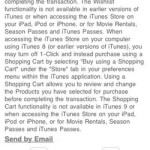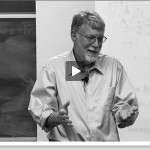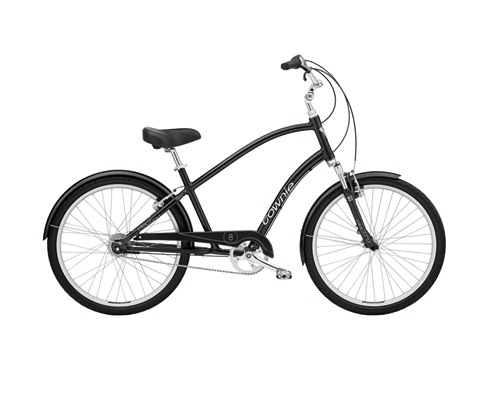Really Apple? 35 screens of legal text to buy a song?
Month: May 2010
Review: HBO’s The Pacific
Today I watched the last installment of HBO’s The Pacific, culminating 10 hours of intense television that I had been anticipating for months. As with Band of Brothers before it, The Pacific was more than just education–it brought amazing perspective on the tragedy and violence of war and reenforced how small my own problems seem in comparison.
The Pacific was about as different from Band of Brothers as the Pacific Theatre was from the European during the war. As Eugene Sledge points out in this talk, the German soldier was a very competent killer, but in the end, wanted to get back to his family after the war. The Imperial Japanese soldier, however, had no higher honor than to die for the emperor. That led to a very different kind of brutality and a raw volume of killing thoroughly depicted in the series.
On balance, I felt Band of Brothers to be the better of the two–primarily due to the fact you are following one cohort through the war and get to know the soldiers, and their amazing leader Dick Winters, quite well over the 10 hours. The Pacific bounced around between different key Marines and only touched on some of the incredible leadership stories (Chesty Puller getting the most attention).
One of the most compelling stories, that of Captain Andrew “Ack-Ack” Haldane, deserved more attention. He represented the best America had to offer, a natural leader: captain of the football and baseball teams, president of the student council, beloved by his men and respected by his superiors. As you can read in this profile, and this news story, his impact is still felt.
Even as an American history buff, I did not know the whole story of John Basilone and intentionally did not read more about him beforehand so as to experience his story unfold in the series. That resulted in the second kick in the stomach of the series for me, the first being Haldane. After reading the citations for his Medal of Honor and Navy Cross, I couldn’t help but feel the depiction of both events in the series was lacking.
As with Band of Brothers, the series brought an amazing perspective to the “problems” I have in my “intense” and “stressful” corporate job. Since we don’t have cable at home, I bribed a history buff friend of mine to subscribe to HBO (thanks Scott!) so we could watch each episode over lunch at his house. The contrast couldn’t be more stark, going from my “hectic” office, to view (or rather experience) each episode in the dark of his living room, then emerge an hour later to a sunny afternoon in his bucolic suburban neighborhood. Each time I returned to the office, things seemed a little less dire at work.
Overall, I salute Hanks and the producers for putting this historic piece out there. It will educate countless viewers about what those men went through, and maybe make you think a little bit differently about Trumen’s decision to use the nuclear bomb to ultimately save lives. While I didn’t enjoy it as much as Band of Brothers, it is an important contribution to our historic memory and a superb tribute to those Marines.
Manifesto for Passionate Creatives
Manifesto for Passionate Creatives
from John Hagel III, John Seely Brown and Lang Davison. Hagel further defines passion in this other blog post as:
…strong emotions that motivate us to move beyond our comfort zone and to achieve the potential that resides within us. Passion comes from within each of us; it cannot be imposed or mandated from outside. At the same time, it compels us to move outside, to engage with the world around us.
Collaborative Innovation and the Pull Economy by John Seely Brown. Excellent talk that touches on ecosystems, practices of reciprocity for network building, and the notion of knowledge flow rather than stock.
Manifesto for Passionate Creatives
In PDF form, from John Hagel III, John Seely Brown and Lang Davison. Hagel further defines passion in this other blog post as… (Source)
…strong emotions that motivate us to move beyond our comfort zone and to achieve the potential that resides within us. Passion comes from within each of us; it cannot be imposed or mandated from outside. At the same time, it compels us to move outside, to engage with the world around us.
John Seely Brown: Collaborative Innovation and the Pull Economy
Excellent Stanford talk that touches on ecosystems, practices of reciprocity for network building, and the notion of knowledge flow rather than stock. (Source)
Cass Sunstein and the University of Chicago Mind
Cass Sunstein and the University of Chicago Mind
This New York Times Magazine article has some interesting insight into the mindset of this administration:
The professors in Hyde Park believe in something called the University of Chicago mind. It runs cold and analytical when the rest of the culture runs hot. Chicago scholars tend to be social scientists at heart, contrarian but empirical, following evidence to logical extremes. They are centrally interested not in what it is like to be an individual within society but in how society washes over individuals, making and remaking them. During the campaign, when his former Chicago colleagues were asked to detail Barack Obama’s intellectual evolution, many of them described him in these terms. But they knew Obama, at best, only partly exhibited this tradition. His friend Cass Sunstein, who is certainly the most productive and probably the most influential liberal legal scholar of his generation, inherited it in full. “Cass has,” says Saul Levmore, a former dean of the law school, “the quintessential University of Chicago habit of mind.”
The value of a human life:
The office’s administrators require that federal agencies express the costs and benefits of their proposed rules (lives saved, swampland preserved) in dollars. Moral principles, filtered through this cost-benefit analysis, find their way into confounding little boxes. A human life, the E.P.A. figured in a 2001 rule about arsenic and drinking water, was worth $6.1 million. (If an environmental regulation would save one life but cost $4 million, it ought to be put into effect; if it cost $8 million to save that life, the regulation would be scuttled.) Each I.Q. point a child lost because of exposure to lead was worth $8,346 over the course of a lifetime. A lost workday was worth $83. Many of these estimates used data from surveys — taken at malls, among other places — that asked passers-by how much more they would need to be paid to take on a job that carried, for instance, a 1-in-10,000 risk of death. Richard Posner, who has the most magnificent and chilly mind in this realm, used similar projections to price the benefit of preventing the extinction of the human race at $600 trillion.
The power, and danger, of putting an academic in an applied setting:
“There’s a big difference between the role of an academic and the role of someone in government,” Sunstein told me when we spoke at the Au Bon Pain near the White House. “That’s a cliché, but in academic life if you say things that are common sense and people nod their heads, it’s not very useful. You’re not adding anything.” One of the changes in Washington, he said, was the pace: he could no longer take off the afternoons to play tennis. It was past dinnertime, and Sunstein was headed back to the office, to his memos. “When I was an academic, I’d sometimes get a little feeling of excitement when I had an idea that was, I hoped, fresh,” he said. “And whether anyone should act on that idea is a very different question.”
Indeed.
Those who do not find time for exercise now will have to find time for illness.
The Benefits of Biking to Work
Thanks to my new ride, I have the ability to bicycle to work rather than drive. It’s something I’ve always wanted the choice to do, and finally my proximity to the office, the local weather, and a recent lifestyle choice coincided to make it possible.
A round trip is only 5.2 miles, which amounts to 26 miles if I rode every day. That’s probably not a reasonable goal since there will still be occasions where I will need a car for other reasons (weather, errands, etc.), so I’m starting with a goal of 3 days per week, or 15.6 miles.
Assuming a leisurely pace, that’s about 700 calories I would not have burned. It’s about 2 more hours of fresh air and sunshine and a the chance to savor a peaceful buffer between a bustling home and frenetic office.
It will save me about a gallon of gas per week, running about $3.50 around here, and maybe $8 in vehicle mileage (that’s almost $600 per year!). If I’m able to do this year round, it amounts to saving over half of ton of CO2 emissions (calculator).
So I suppose the question should have always been, why drive?
Excited about my new ride to work, an Electra Townie 8i. And just in time for California Bike to Work Day!


